Even more mysterious encryption technology of the Résistance
During World War II, French resistance fighters used a cipher table written on a cloth. Can a reader solve a message possibly encrypted with it?
In the last weeks I have blogged a total of three times about encrypted messages of the Résistance. The reason: Via the website “Musée de la résistance en ligne” (“Résistance Museum online”) you can find a whole series of ciphered messages of this organization.
Résistance is the name given to the French resistance movement against the German occupation during the Second World War.
The mentioned messages can be found in an online archive, which is accessible via the mentioned website. Most of the time, there is no or only very general information about the plaintext and the encryption methods used. Apparently, no crypto-historian has ever dealt with these cryptograms. So it is even nicer that some of my readers, among them Norbert Biermann, ShadowWolf, Max Baertl, Gerd Hechtfischer, John Dooley, Matthew Brown, Paolo Bonavoglia, Thomas Bosbach, TWO and George Lasry could shed some light after my articles.
A cipher table?
Among the objects found above the Résistance website is the following cloth:
Unfortunately, it is not clear to me what purpose the printed table had. The website only mentions a code that was used for radio messages.
As far as I can see, each number appears only once in the various columns of numbers. So these could be cipher keys for a transposition cipher. The five-letter groups in the right column could be identifiers for the respective key. It is interesting that the columns of numbers are of different lengths. It is possible that one had to divide a message into blocks of the appropriate length and then encrypt each block individually with the respective key. For shorter messages (about one block), this method seems quite secure to me. For longer messages (several blocks), on the other hand, one could use the technique of multiple anagramming described in my book “Codebreaking: A Practical Guide”.
Or am I wrong in my assumption, and the table has a different meaning?
A coded message
Along with the table, the following cryptogram is shown on the web page:
Is this a message that was encrypted using the table? Quite possible, but of course it could be a wrong assignment.
Can any reader find out more? I will gladly accept comments.
If you want to add a comment, you need to add it to the German version here.
Follow @KlausSchmeh
Further reading: Wer löst diese verschlüsselte Nachricht aus dem Zweiten Weltkrieg?
Linkedin: https://www.linkedin.com/groups/13501820
Facebook: https://www.facebook.com/groups/763282653806483/

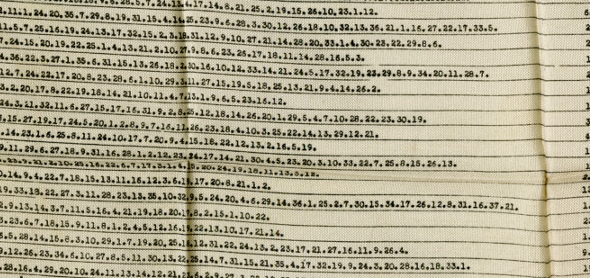
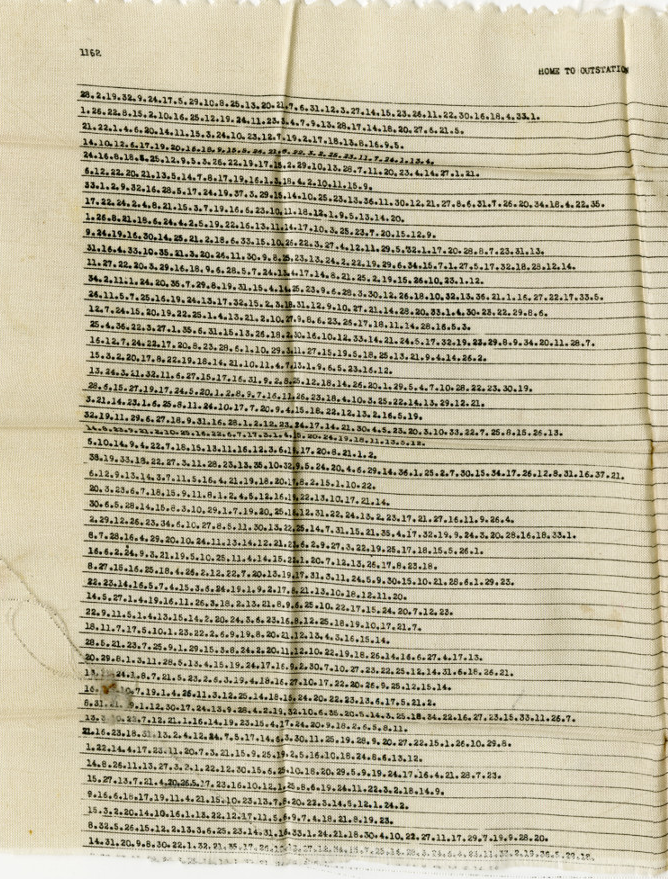
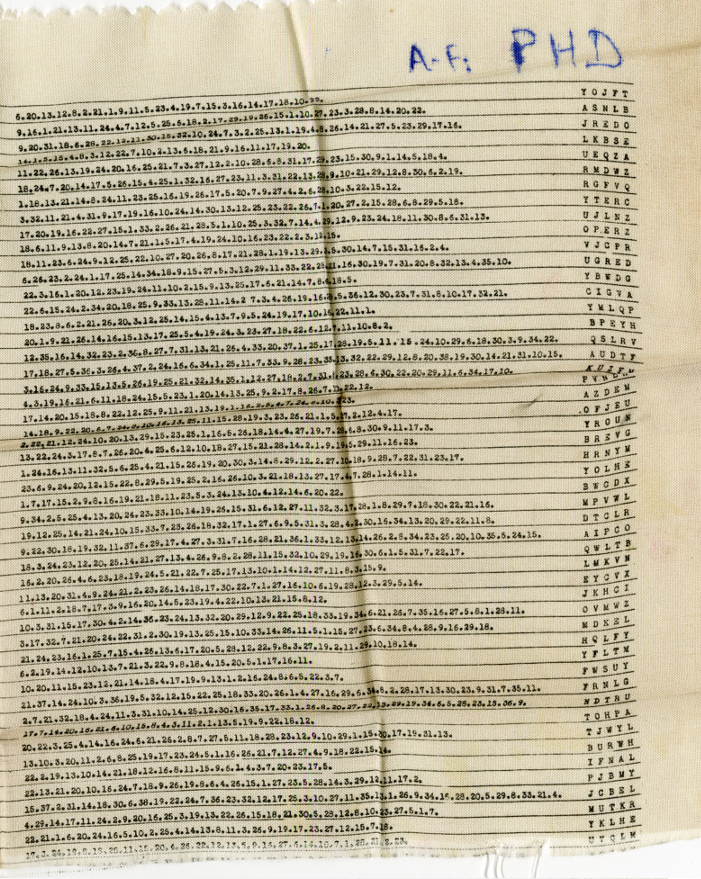
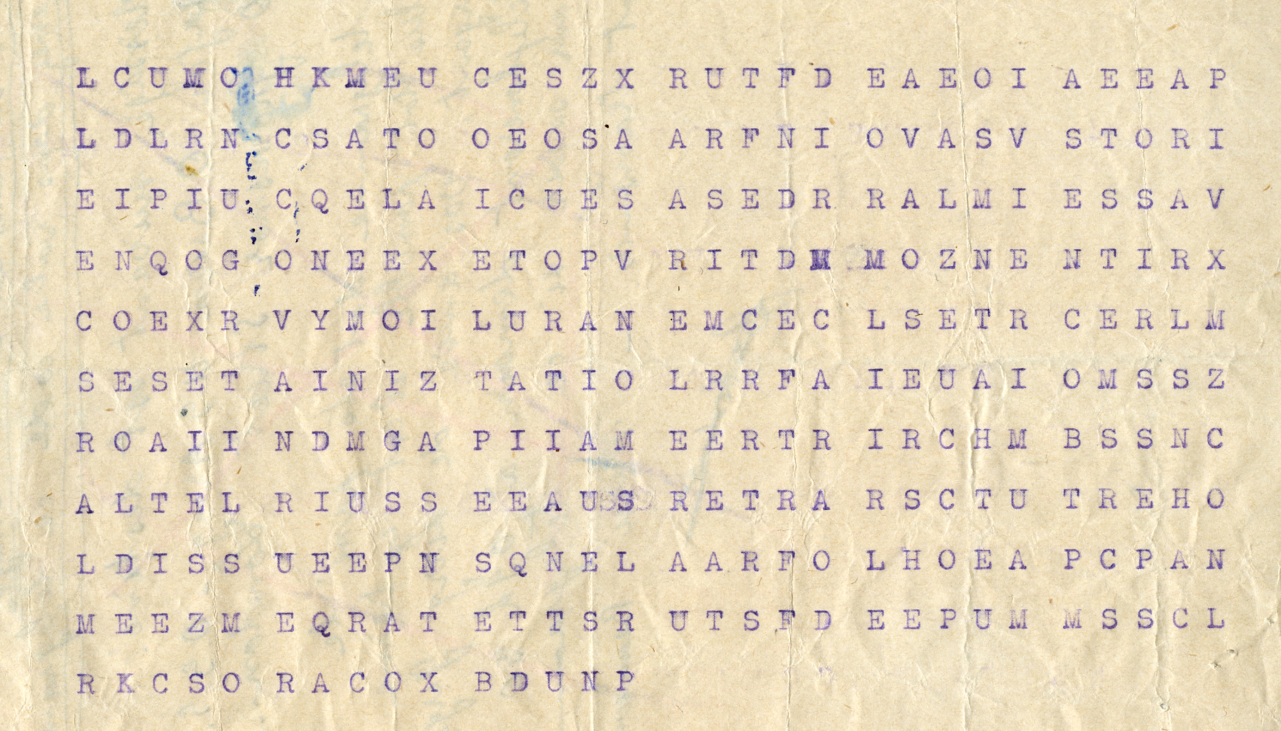
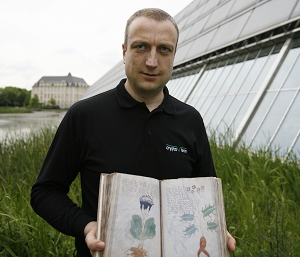
Letzte Kommentare